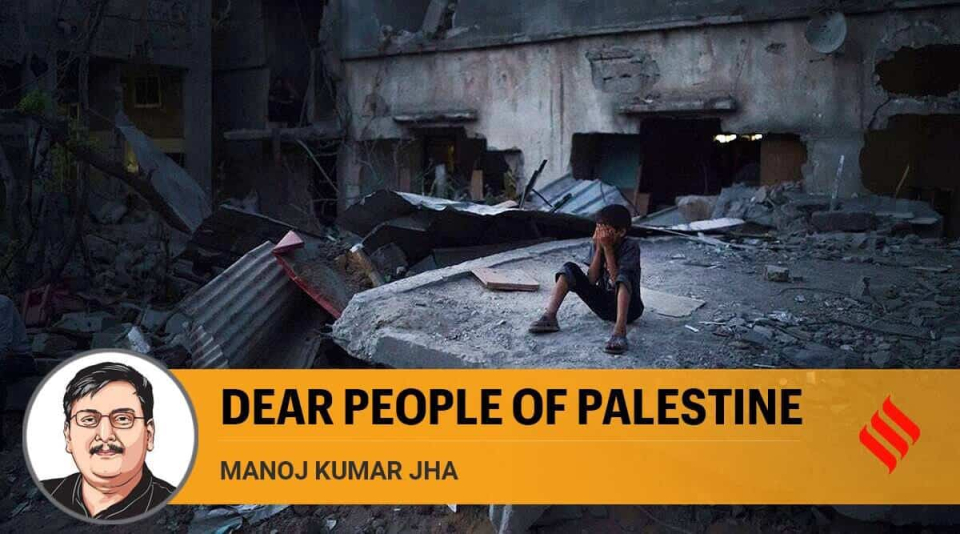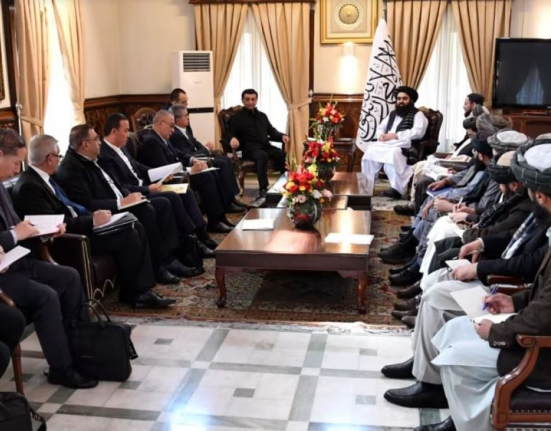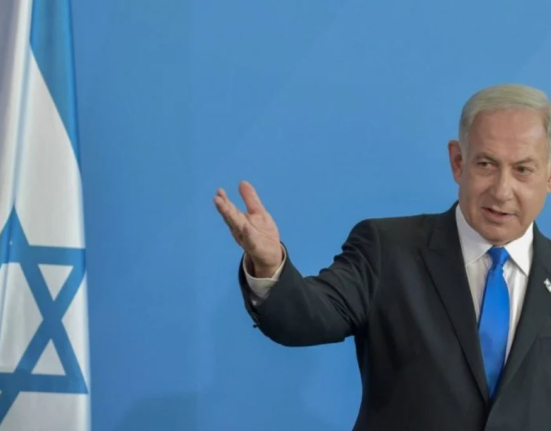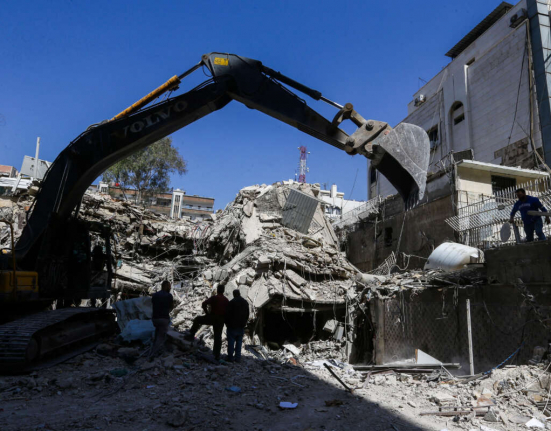by : Manoj Kumar Jha , The India EXPRESS
Manoj Kumar Kha writes: India’s abstention from UNHRC resolution on Gaza violence is a betrayal of its history -- and the bond between two peoples.
We would like you to read this letter as an expression of regret from millions of Indian people for our recent abstention on Palestine’s resolution at the United Nations Human Rights Council (UNHRC). We not only abstained from voting on a crucial resolution regarding the large-scale violence in the Gaza strip, but our representatives abandoned the rich legacy of the Indo-Palestinian relationship that has survived several stormy phases of history.
India recently commemorated the 150th birth anniversary of Mahatma Gandhi. The current dispensation is very fond of paying lip service to his ideals and teachings. When the issues concerning Palestine are raised, Gandhiji’s words must be remembered: “Palestine belongs to the Arabs in the same sense that England belongs to the English or France to the French. It is wrong and inhuman to impose the Jews on the Arabs. What is going on in Palestine today cannot be justified by any moral code of conduct…. Surely, it would be a crime against humanity to reduce the proud Arabs so that Palestine can be restored to the Jews partly or wholly as their national home.” (Harijan, November 26, 1938).
This invocation from Gandhiji resonates with a majority of thinkers, activists, and citizens across the world, but somehow does not find favour with our current government. A majority of Indians still fondly recall how the Indo-Palestine bilateral ties in the first few decades since Independence were defined by friendship and empathy. Instead of abandoning this great legacy, the ties between India and Palestine need to be strengthened with a collective sense of urgency — for the sake of humanity. I am always very pleased when I hear of young students in Indian universities organising events to express their solidarity with the Palestinian people. When writers and artists from India and Palestine come together to discuss their work, it opens up possibilities of imagining a just, beautiful, and peaceful future for all of us. We must continue to engage and exchange ideas. We must remember and speak of our shared history.
We would like you to read this letter as an expression of regret from millions of Indian people for our recent abstention on Palestine’s resolution at the United Nations Human Rights Council (UNHRC). We not only abstained from voting on a crucial resolution regarding the large-scale violence in the Gaza strip, but our representatives abandoned the rich legacy of the Indo-Palestinian relationship that has survived several stormy phases of history.
India recently commemorated the 150th birth anniversary of Mahatma Gandhi. The current dispensation is very fond of paying lip service to his ideals and teachings. When the issues concerning Palestine are raised, Gandhiji’s words must be remembered: “Palestine belongs to the Arabs in the same sense that England belongs to the English or France to the French. It is wrong and inhuman to impose the Jews on the Arabs. What is going on in Palestine today cannot be justified by any moral code of conduct…. Surely, it would be a crime against humanity to reduce the proud Arabs so that Palestine can be restored to the Jews partly or wholly as their national home.” (Harijan, November 26, 1938).
This invocation from Gandhiji resonates with a majority of thinkers, activists, and citizens across the world, but somehow does not find favour with our current government. A majority of Indians still fondly recall how the Indo-Palestine bilateral ties in the first few decades since Independence were defined by friendship and empathy. Instead of abandoning this great legacy, the ties between India and Palestine need to be strengthened with a collective sense of urgency — for the sake of humanity. I am always very pleased when I hear of young students in Indian universities organising events to express their solidarity with the Palestinian people. When writers and artists from India and Palestine come together to discuss their work, it opens up possibilities of imagining a just, beautiful, and peaceful future for all of us. We must continue to engage and exchange ideas. We must remember and speak of our shared history.
There has been a systematic attempt at misrepresenting, invisibilising and vilifying your heroic struggle against the forceful and violent dispossession of land, as well as memory. Hence, this recent abstention in the UN is part of a paradigm this regime has nurtured meticulously, wanting us to forget that when it is about taking sides, India has always stood with the oppressed without caring about the might or clout of the oppressor.
The historical trajectory of our emotional association with your struggle is being undone meticulously. Unfortunately, a considerable section of our mainstream media has helped the regime by expanding the sphere of the Islamophobic discourse. As a result, they have reduced your cause into nothing but a Muslim issue, which the Western world did for so many years.
Let me try to elucidate how we reached such a stage where we have no regret in doing away with the rich heritage of the Indo-Palestinian relationship. We are at that moment in history when the government has started believing that an electoral majority is a licence to trample over anything, including history. We have seen several such instances in our domestic sphere and equally so in our relations abroad. There is a vast disconnect between how the government thinks and how the people who elected the same government feel. Unfortunately, we do not have any mechanism to check the government and its decisions before the next general elections, still a few years away.
It is worth recalling the words of Yehudi Menuhin, a Jew and one of the finest violinists, while receiving Israel’s prestigious Wolf prize for his contribution to music in 1991: “One fact is abundantly clear, namely this wasteful governing by fear, by contempt for the basic dignities of life, this steady asphyxiation of a dependent people should be the very last means to be adopted by those who themselves know too well the awful significance, the unforgettable suffering, of such an existence”.
We are deeply pained at the death and injury of hundreds of small children. We are also worried, even as we ourselves struggle with the deadly second wave of Covid-19, that you remain doubly vulnerable in this pandemic due to the unavailability of medical supplies and vaccines.
Forgive us our Palestinian friends, for what we have done in the recent past. Forgive us for not living up to your expectations. Forgive us for our loud silence. But let me assure you that the civilisational ethos of India is far more powerful than any regime which believes that they can erase and rewrite memory and history.
















